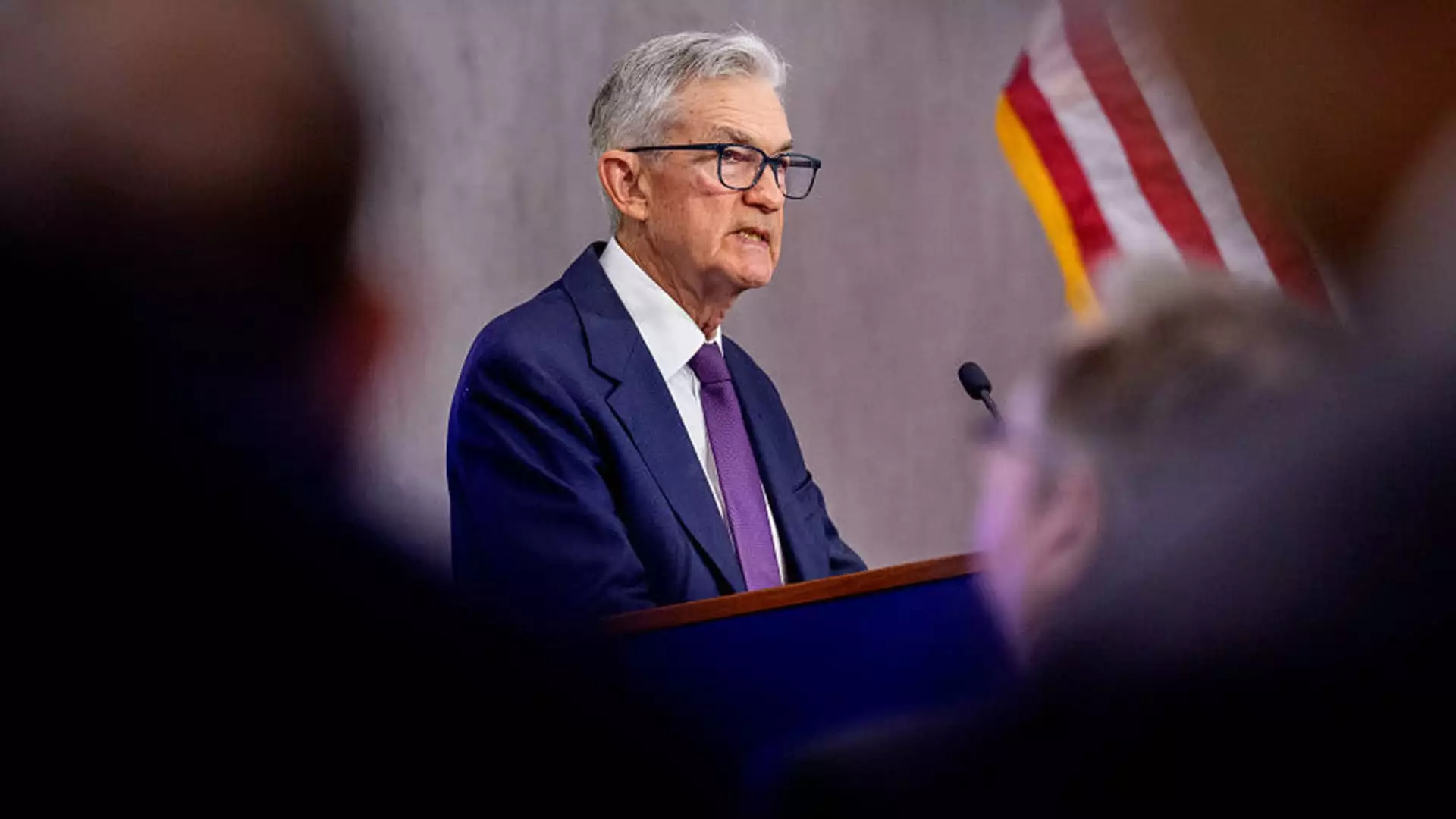In the high-stakes world of economic governance, few dramatic performances rival the ongoing spectacle between President Donald Trump and Federal Reserve Chairman Jerome Powell. The volatility in their relationship epitomizes tension at the intersection of politics and economics, revealing the fragility of leadership under immense scrutiny. It’s a storm of rhetoric that has both captivated the public’s gaze and raised concerns about the integrity of monetary policy, a realm that ideally should remain untouched by partisan pressure.
Trump’s recent outbursts, particularly his vehement demands for interest rate cuts, underscore a refrain that has become all too familiar. While the President lauded the notion of aggressive monetary policy as a means to bolster growth, it raises questions about the potential consequences of such approaches. An emotionally charged cry of “He is unbelievable!!!” directed at Powell not only exemplifies Trump’s unvarnished exasperation but also highlights the danger of equating economic strategy with political expediency.
ADP’s Disappointing Report: A Reckoning of Realities
The latest report from ADP, revealing a paltry increase of merely 37,000 private sector jobs in May, sent shockwaves through the political sphere. This striking evidential plateau stands in stark contrast to the soaring predictions of 110,000 jobs anticipated by economists. Such stark discrepancies not only illustrate the unpredictability of employment trends but also amplify the need for a prudent, data-driven approach to policy adjustments.
While the President invokes comparisons with Europe—calling it “unbelievable” that the Fed has not cut rates, especially given that the European Central Bank has slashed rates on multiple occasions—the truth remains more complicated. The macroeconomic landscapes of the U.S. and Europe diverge in ways that demand unique approaches tailored to specific regional challenges. Alarm bells should go off when whether to cut interest rates becomes a question framed in terms of political popularity rather than one rooted in empirical analysis.
The Political Football of Monetary Policy
Trump’s proclivity for pushing Powell to acquiesce to his demands reveals a fundamental misunderstanding of the Fed’s mission. While the administration may hope for instantaneous results through interest rate cuts, such measures are not without their risks. The intricacies of inflation, employment rates, and global economic interactions illustrate why Powell remains steadfast in his belief that decisions should be based on objective economic data rather than political persuasion.
In pushing for a more populist approach, Trump indulges in the familiar political sport of blaming those in power when outcomes don’t align with his expectations. The repeated public naming and shaming may serve to galvanize his base, but it ultimately threatens the independence of the Federal Reserve, which is crucial for maintaining stability in an often volatile economic landscape. Critics may view Trump’s tactics as a troubling attempt to politicize one of the few institutions designed to remain above the fray.
Why Perceptions Matter: A Delicate Balancing Act
In an age of instant communication and social media impulsiveness, perceptions can end up defining reality. When the President of the United States positions himself against the very leadership that influences the country’s monetary policy, he runs the risk of spurring uncertainty in markets. Once faith is shaken, the ramifications can ripple across numerous sectors, from businesses planning expansions to individuals contemplating home ownership—decisions that hinge on faith in financial stability.
Powell’s measured responses, seasoned with a reminder that rates must be based on objective data, attempt to refocus the narrative from political gamesmanship to economic realities. It is imperative that the strength of economic policy does not become subordinate to political maneuvering, which only creates more division and distrust.
In an economy increasingly fraught with risks stemming from tariffs and geopolitical instability, the priority for both Trump and Powell should involve fostering a non-partisan approach that values data over demagoguery. Striking a balance is critical; the future of the economy rests not merely on short-term political gains but on sustainable growth achievable through cooperative governance and steadfast adherence to best practices in economic policy.


Leave a Reply